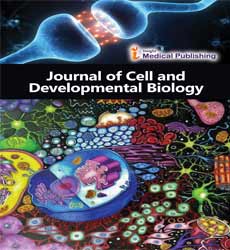Prognostic significance of 14-3-3 and its role in regulating tumour progression of hepatocellular carcinoma
Abstract
14-3-3 proteins are implicated in regulating tumor progression of various types of human malignancies. We have previously reported that expression of 14-3-3ε is associated with prognostic outcomes of hepatocellular carcinoma (HCC) patients. Results from the in vitro experiments and in vivo xenograft mice model indicate that 14-3-3 proteins promote HCC cancer cell proliferation, epithelial-mesenchymal transition (EMT), cell migration, invasion and tumor growth. Overexpression of selective 14-3-3 proteins is significantly correlated with microvascular invasion, high risk of metastasis as well as worse overall survival rate of HCC patients. These results suggest that increased expression of 14-3-3 proteins play important roles in regulating HCC tumor development. We have identified several downstream factors including FAK, Par-3, Zeb-1, β-catenin, and AKR1B10 are regulated by 14-3-3 proteins in HCC. We found 14-3-3ε induces Zeb-1, thereby suppressing E-cadherin expression and promoting EMT. Our study indicated that 14-3-3ε upregulates AKR1B10 through a β-catenin-dependent mechanism and AKR1B10 is involved in promoting cancer cell proliferation and tumor growth of HCC. Moreover, we have examined the prognostic value of 14-3-3ε, MT-1 and AKR1B10 expressions in HCC. We found that 14-3-3ε positivity was significantly associated with decreased MT-1 expression in HCC. Patients with decreased MT-1 expression had worse survival rates and a higher risk of metastasis than 14-3-3ε positive HCC patients with unchanged MT-1 expression. Distinct expression patterns of 14-3-3ε/MT-1/AKR1B10 were significantly associated with the metastatic incidence and survival rates of HCC patients. Patients with negative 14-3-3ε staining in primary tumors had better prognostic outcomes. In contrast, patients with positive 14-3-3ε staining, decreased MT-1 expression and no increase in AKR1B10 expression in primary tumors had the worst overall and disease-free survival rates and the highest metastatic risk. Thus, 14-3-3ε, AKR1B10, and MT-1 act as potential prognostic biomarkers of HCC.
Open Access Journals
- Aquaculture & Veterinary Science
- Chemistry & Chemical Sciences
- Clinical Sciences
- Engineering
- General Science
- Genetics & Molecular Biology
- Health Care & Nursing
- Immunology & Microbiology
- Materials Science
- Mathematics & Physics
- Medical Sciences
- Neurology & Psychiatry
- Oncology & Cancer Science
- Pharmaceutical Sciences
